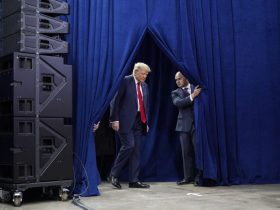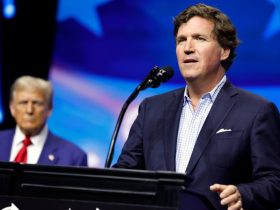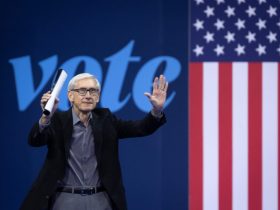As the presidential election creeps closer, political discussions are casting a shadow on workplace culture, new data from Gallup shows.
As of February, nearly half of U.S. workers had talked politics with a co-worker in the past month, a figure “that has likely only increased as the presidential election has progressed,” the report from Gallup notes.
The question of how to manage political interactions and expression in the workplace has become increasingly urgent for managers over the past year, as workers across the country have taken part in protests, walkouts and boycotts, both over corporate policies and political issues. Now, as the Democratic National Convention draws to a close and the presidential campaign heats up, it’s even more front-of-mind for leaders.
A separate Gallup poll conducted in May found that 57 percent of U.S. adults say they have at times avoided sharing their political views due to fear of harassment or poor treatment.
These interactions are nearly as common for hybrid workers (48 percent) as they were for fully on-site employees (54 percent). Hybrid and in-person workers were also more likely to have overheard a political conversation (38 percent and 47 percent, respectively).
Remote workers are somewhat insulated, with 28 percent indicating they’d discussed politics with a co-worker and 16 percent saying they’d overheard a political conversation, Gallup’s data shows.
Researchers at Gallup explored the prevalence of political conversations at work across a range of industries and examined the demographics and political affiliations of respondents to see who talks the most politics at work.
Comfort with political chat at work also varies across generations, Gallup’s data found, with younger employees more likely than older employees to report feeling uncomfortable because of political discussions. Younger workers were also more likely to say they have grown closer to a co-worker due to political views.
Fifty-four percent of men have had political conversations in the workplace, compared to 35 percent of women, Gallup’s survey found. This trend bore out across occupations: Workers in male-dominated fields (52 percent) such as construction were more likely than those in female-dominated industries (42 percent) such as health care to have discussed politics on the job.
When workers hear their political views shared by colleagues, it can increase their feeling of belonging; 14 percent of U.S. workers surveyed reporting that talking politics with a co-worker helped them feel included, according to Gallup’s data, while 11 percent said they’ve grown closer with colleagues because of shared political views.
But nearly as many (12 percent) reported being made uncomfortable by political discussions in the workplace, while 3 percent said they’d been treated unfairly by co-workers because of their political views.
Friction created by political conversations at work can take a real toll on productivity and well-being, whether employees are directly involved or just listening in, according to research published in January in the Journal of Applied Psychology. Overhearing political conversations can potentially stall progress and lower job satisfaction for employees who feel like their views don’t align with their colleagues, the research found.
Other surveys over the past several years have found that political discussions at work have increased, with some people saying that they are treated differently by co-workers, or feel more stress in the office, because of their political views.










